In December 2015, photographer Magda Rakita and writer Mark de Rond travelled to Afghanistan to investigate how more than three decades of war and endemic violence has impacted the nation’s psyche. Here Professor de Rond discusses the neuro-psychiatric hospital they visited, and the lack of PTSD diagnoses. An LSE Arts exhibition of 16 images from the trip is on display in the atrium of LSE’s Old Building until 9 December.
Nearly four decades of conflict have bankrupted Afghanistan’s infrastructure, if not also the resilience of its people. Its rudimentary healthcare system — once the poster-child of NATO’s development agenda — is scarcely able to cope with the physically ill, let alone those with mental illness and others left psychologically wounded by a cruel epidemic of violence. Schizophrenia, bipolar disorder, and drug-induced psychosis are common fare here; more commonplace yet are major depressive disorder (MDD) and anxiety. What is surprising is that PTSD, or the trauma that follows exposure to violence, is barely diagnosed at all. The question is why.
Afghanistan’s first-ever private neuro-psychiatric hospital is located in Mazar-e-Sharif, a city tucked into its northern, mountainous border with Uzbekistan. The hospital bears the name of its founder, Doctor Nader Alemi, and can accommodate up to twenty in-patients on two upstairs floors. Its outpatient clinic downstairs caters to anywhere from 80 to 120 people each day, not counting their entourage, meaning it takes some skill to manoeuver from the crowded, dimly lit corridor-cum-waiting area to the doctors’ room midway through. Here patients straddle old-fashioned scales prior to their consultation; if they are overweight, Doctor Alemi tells them so, though never unkindly. Many are embarrassed to be here, and so he works hard at reassuring them that there’s no shame in what they feel; that their experiences are more common than they might think.
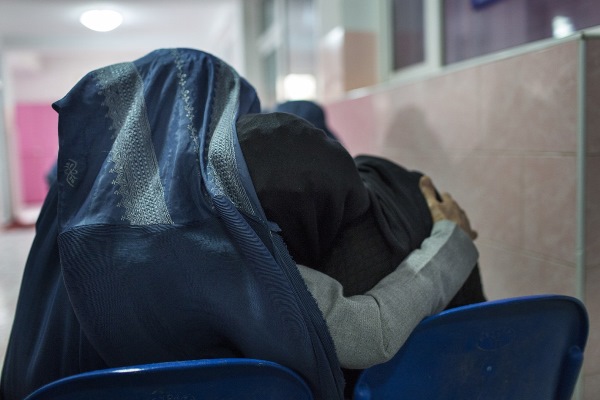
Unlike comparable clinics in the West, consultations are public events. The only privacy is that conferred on women by their burkas. The men have no such recourse in a country where demand for psychiatric expertise vastly outstrips supply. Thus, as shades of blue file in ghost-like from the pink corridor outside, others, clutching their prescriptions, file out en route to the dispensing room opposite. Patients are escorted by relatives — most wouldn’t be here if not for exasperated family members — and take their seat as Doctor Alemi eyeballs the handwritten notes of his junior doctors and fixes his gaze on them. The room may be full and the corridor noisy, but for a short, precious moment it is as if the patient were the only one present.
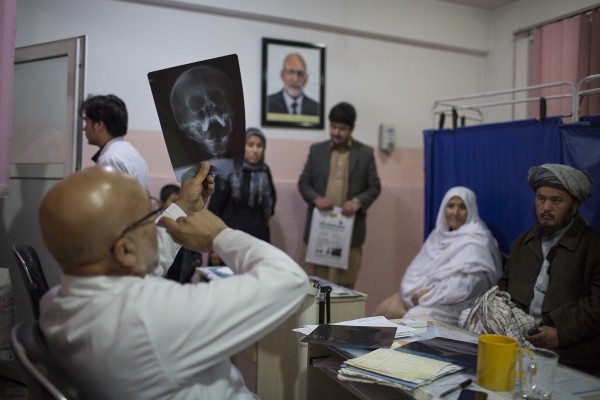
“My liver is bleeding”, one of them replies when asked how he is feeling. It is the most commonly expressed sentiment here. It means he’s unhappy. The next in line tells the doctor her heart is tight, to let him know she is sad; others tell him they’re impatient, to say they’re angry. Occasionally, Alemi will peruse a ticker-tape printout of their ECG or a facial X-ray before offering a diagnosis and prescription. If only he had someone with expertise in reading ECG printouts, he says. As it is, it took him a year-and-a-half to find someone able to interpret X-rays, and only then after he’d sent him to India for a month to qualify. Qualified staff are hard to come by, and harder to retain. There are no local psychotherapists or psychologists in Mazar, and so mental illness is treated pharmacologically: by popping pills. Even if originally designed to provide relief for the well-to-do-and-able-to-pay in the West, Prozac’s real value today may be that of appeasing the Afghan mind. Without it, said one Afghan, he would want to kill every foreigner in sight. Generic versions of it are relatively inexpensive and widely available. Consultations cost around three dollars per patient, with ECGs and X-rays costing another $3.50 and $4 respectively. Serious cases are offered one of the rooms upstairs for observation, though few can afford the fee of 1,500 afghanis ($23) per night, or the inconvenience of yet another day away from work or home.
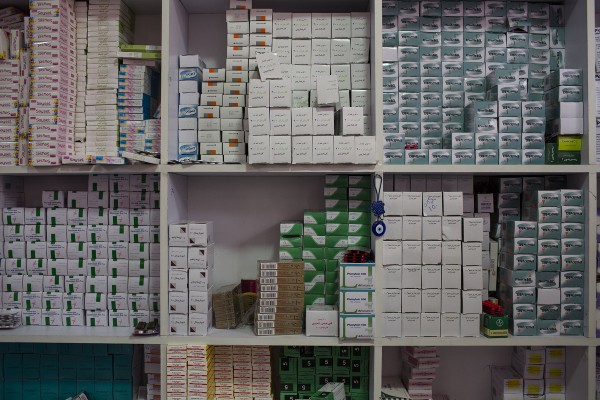
I am here to try and understand how Afghanistan’s epidemic of violence is impacting on the psyche of its everyday citizens. Having seen first-hand the tragic human cost of combat during a deployment with military surgeons in Helmand in 2011, I wondered about the long-term psychological impact of war. We worry about the impact on our soldiers, as we should, but what about those left behind?
Doctor Alemi offered to be my host. His outpatient clinic will remain open until the last of the patients have gone, which is often not until after 11pm. His hospital has never been short of people since it was founded twelve years ago. Such is his reputation that some travel 700 kilometres for what may be no more than a ten-minute consultation with him. His dedication to his profession is legendary, as is his impartiality: his security guards do not carry Kalashnikovs — they carry no arms at all — and his clientele include rich and poor, the neurotic, psychotic and suicidal and, given his fluency in Pashto, the Taliban too.
A sequence of brutal wars since 1978 has had a profound impact on Afghanistan’s psychology. It is estimated that 42 to 66 per cent of Afghans suffer from PTSD, though it is not clear how meaningful these figures really are. Reliable data on PTSD is hard to come by in a country that doesn’t even know the size of its population. None of the patients during my two-week visit were diagnosed with PTSD. In fact, Mazar’s civil hospital and Alemi’s neuro-psychiatric hospital very rarely offer a formal diagnosis of PTSD. Records of a mental health clinic in Herat, operated by International Assistance Mission (IAM), suggest that only 1.2 per cent of their patients were diagnosed with the disorder. So why isn’t there more of it?
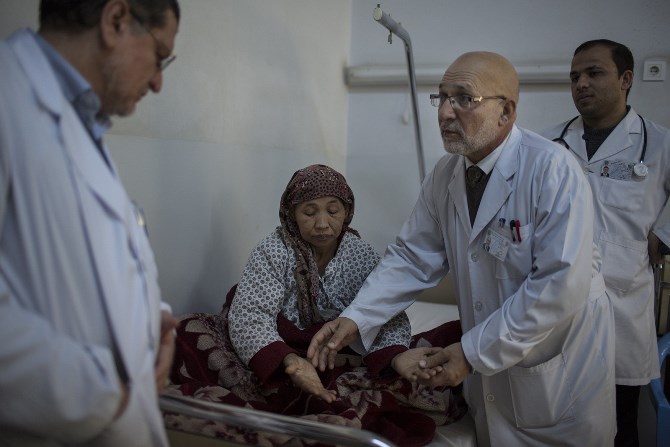
One reason why PTSD isn’t more readily diagnosed is that some of its symptoms — hyper-arousal, vigilance, and anxiety — are not considered particularly abnormal here. PTSD is nowhere because it is everywhere. By contrast, a 2004 survey, the last available, found 68 per cent of respondents to suffer from depression, and 72 per cent from anxiety. Each of these causes people to withdraw from social situations, and given that, culturally, Afghans are community and family orientated, the wish to be left alone is seen as the real outlier, and one that relatives may decide needs treating. Moreover, by treating MDD (major depressive disorder) and anxiety with a generic variant of Prozac or other serotonin reuptake inhibitor, you likely ease the symptoms of PTSD in any event. And, besides, PTSD requires time to diagnose in a world where patients outstrip doctors by a large margin, meaning time comes at a premium.
Diagnosing PTSD is also complicated by the inability of many patients to express how and what they feel in a nuanced way. It is uncommon nowadays for Afghans to talk openly about their feelings to others, either because they don’t trust even those closest or because they are ashamed of having such feelings. Or they think it inappropriate to burden others with problems seeing they have plenty to worry about themselves, and so why heap misery upon misery. Not talking about how they feel means they lose fluency in expressing themselves emotionally. Thus, ironically, the harshness of life has made it difficult to articulate how difficult living here can be.
All images © Magda Rakita.
Magda and Mark travelled to Afghanistan as winners of the Afghanistan Journalism competition organised by BAAG. The competition was part of Media4Development programme, funded by the European Commission. It aims to bring under-reported development stories to the European public in the 2015 European Year of Development.
This article is based on extracts from the exhibition text. View the full text on Magda Rakita’s medium blog here. The LSE Arts exhibition runs until 9 December 2016.
This article gives the views of the author, and not the position of the South Asia @ LSE blog, nor of the London School of Economics. Please read our comments policy before posting.
About the Author and Photographer
Mark de Rond is Professor in Organizational Ethnography at Judge Business School, Cambridge University. Having deployed with a military surgical team to Camp Bastion in 2011, he returned to Afghanistan in early December for two weeks to look at the effects of conflict on the mental health of its civilian population. He can be contacted via email at: mejd3(at)cam.ac.uk
Magda Rakita is a documentary pho photographer based in Cambridge, UK. She works with the media and NGO’s worldwide; her personal projects focus on health and social issues that affect women, children and the older generation. In 2013, Magda successfully completed MA course in Photojournalism and Documentary Photography at the London College of Communication, graduating with a distinction. In her work she also employs multimedia and participatory projects. She can be contacted via her website: www.magdarakita.com



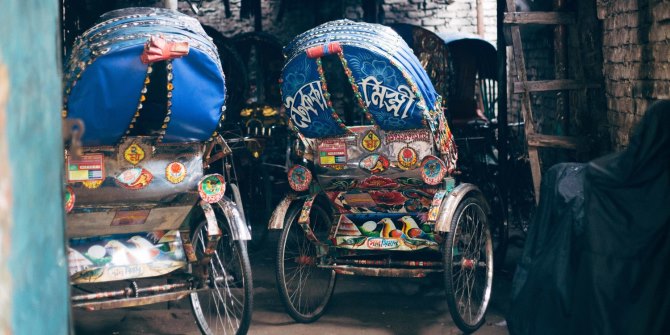


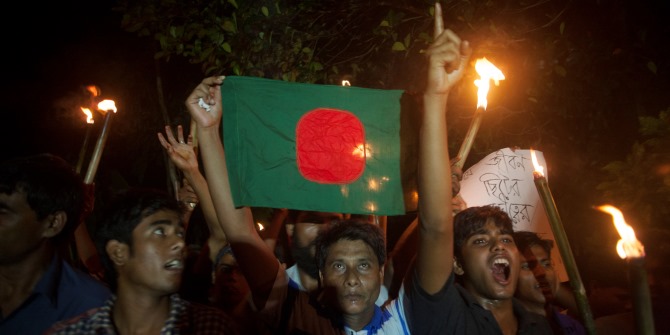

Very upsetting situation. I sent this blog to a psyciatrist friend in the US. She suggested Group Therapy sessions , about 6 to 8 people at a time through facetime. This can be done through people in the Afghan diaspora who speak the language.